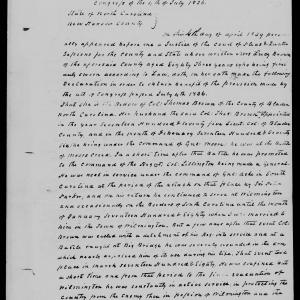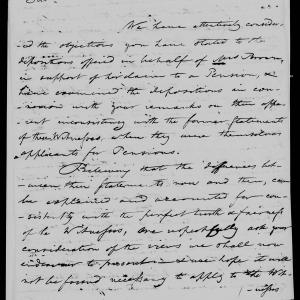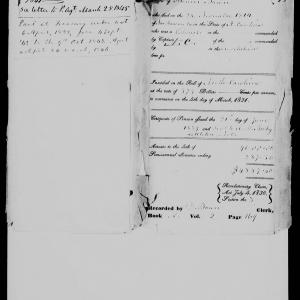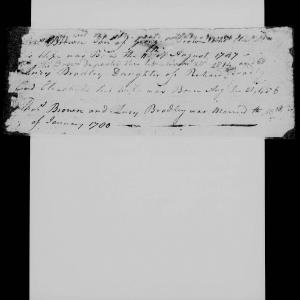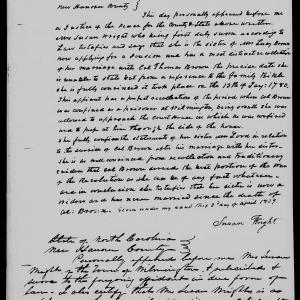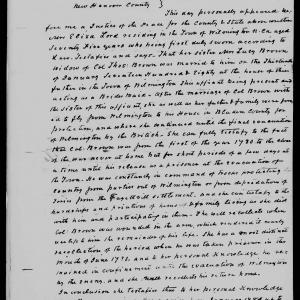Biographical Description
Lucy Bradley Brown was born in Chester County, Pennsylvania to a Quaker family in August 21, 1756. As a child she moved to Wilmington, North Carolina, where she married Colonel Thomas Brown in January 1780. A year after their marriage, Col. Brown was severely wounded in the right arm during the Battle of Big Bridge and she helped see to his injury. In June 1781 her husband was captured by the British and imprisoned in Wilmington, North Carolina, leaving her to care for their child without his support. During this time, Lucy Brown likely lived with her parents. She often sent her younger sister, Susan, to check on her husband in jail. Col. Brown was released in November 1781.
Lucy Brown and her husband had at least five children together and despite her husband's injury, he had a successful career as a statesman and general in the militia. The Browns owned and managed a saw mill, a grist mill, and several plantations, including Ashwood (later called Oakland) in Bladen County and Sedgefield in New Hanover, and were some of the largest landholders in Bladen County. Lucy Brown was likely responsible for much of the day-to-day management of the plantations while her husband was away.
Her husband died in November 1814 and she remained unmarried for the remainder of her life. In 1839 she successfully applied for a widow's pension based on her husband's service during the American Revolution, earning $575 dollars a year from the time of her husband's death for the remainder of her life. Still, regardless of the pension, it is unlikely that she was ever in want of money. Many of sons and sons-in-law held prominent offices and also possessed large tracts of lands themselves. In 1830, Lucy Brown owned at least 59 enslaved people across her various plantations, and in 1840 she owned 51 enslaved people, indicating that she was not in financial straits. In her will, she bequeathed 15 named enslaved individuals to various members of her family when she died in New Hanover County on October 7, 1843.
As Sender
Additional Information
Name
Relationship
Father
Relationship
Mother
Relationship
Husband
Name
Relationship
Son
Name
Relationship
Son
Relationship
Sister
Relationship
Sister
Name
Relationship
Nephew
Name Type:

